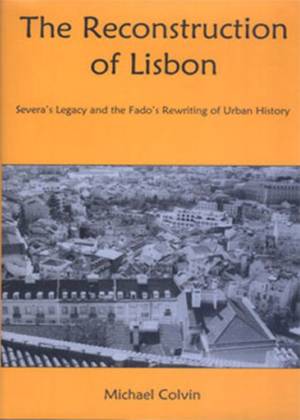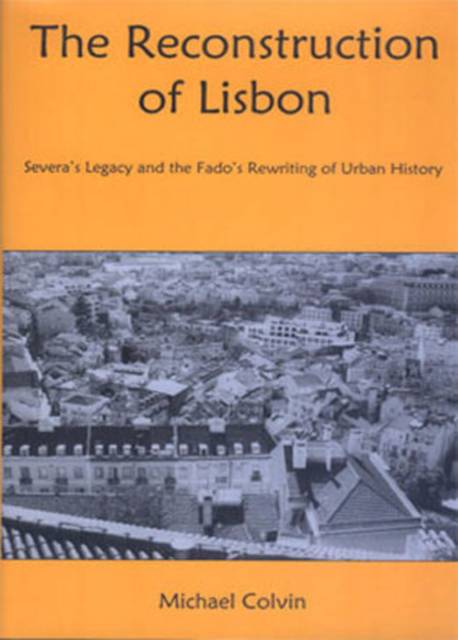
- Afhalen na 1 uur in een winkel met voorraad
- Gratis thuislevering in België vanaf € 30
- Ruim aanbod met 7 miljoen producten
- Afhalen na 1 uur in een winkel met voorraad
- Gratis thuislevering in België vanaf € 30
- Ruim aanbod met 7 miljoen producten
Zoeken
The Reconstruction of Lisbon
Severa's Legacy and the Fado's Rewriting of Urban History
Michael Colvin
Hardcover | Engels
€ 90,95
+ 181 punten
Omschrijving
This book exposes how Fado lyricists have appropriated popular novelist and playwright Júlio Danta's forging of Mouraria fadista/ prostitute Maria Severa as a national heroine, and the Fado as the national song--in A Severa (1901) and A Severa: Peça em Quatro Actos (1901)--to manifest a sub-rosa criticism of the Estado Novo's demolition of the Mouraria between the 1930s and 1970s. The lyricists exploit Dantas's fictionalization/dramatization of Severa's life, death, and consequent legacy in its attempt to link Severa's Mouraria and the Fado to the Portuguese character, to evoke national sympathy, or even outrage for the local cause of the erasing of the Mouraria. In the fado novo 's recontextualization of Dantas's Mouraria, we observe a criticism of the imminent destruction of the Mouraria's three faces: the fadista, the artistocratic, and the Christian. The lyrics of the fado novo of the 1930s to 1970s lament the demolitions that have taken place and warn against further erasing Dantas' Mouraria.
Specificaties
Betrokkenen
- Auteur(s):
- Uitgeverij:
Inhoud
- Aantal bladzijden:
- 131
- Taal:
- Engels
Eigenschappen
- Productcode (EAN):
- 9781611483055
- Verschijningsdatum:
- 1/06/2008
- Uitvoering:
- Hardcover
- Formaat:
- Genaaid
- Afmetingen:
- 167 mm x 246 mm
- Gewicht:
- 408 g

Alleen bij Standaard Boekhandel
+ 181 punten op je klantenkaart van Standaard Boekhandel
Beoordelingen
We publiceren alleen reviews die voldoen aan de voorwaarden voor reviews. Bekijk onze voorwaarden voor reviews.











